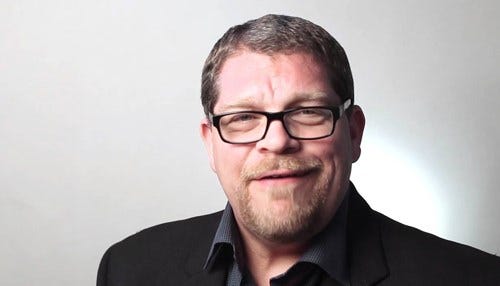In Praise of Stepping Away (However Briefly)

Subscriber Benefit
As a subscriber you can listen to articles at work, in the car, or while you work out. Subscribe NowA long-running MasterCard campaign reminded us that there are “some things money just can’t buy.” Among those priceless "things" is the sense of refreshment following a break – whether it’s a retreat from the office or the feeling of freedom associated with stepping away from the day-to-day monitoring of your retirement account.
Taking a break can contribute to success in your work life and your retirement planning journey. As a CFP in the business of helping people plan for life after work, I encourage people to take advantage of these waning days of summer.
Alas, my suggestion is often met with objections. A recent study conducted by NPR, the Robert Wood Johnson Foundation and the Harvard T.H. Chan School of Public Health finds that about half of Americans do not take all or even most of their earned vacation time. And among those workers who do retreat from the office, 30 percent report that they do a significant amount of remote work while away on vacation.
Here are a few reasons to “give up the grit” and take a break before summer 2016 is in the history books.
Taking a break gets us away from the news cycle and the inflection points of stress it imposes. The “flash crash” of May 6, 2010 saw U.S. markets plunge nearly 1,000 points in less than an hour. Technology and a confluence of factors around the globe created the loss, and instilled plenty of panic before markets corrected. The speed of the world and the news cycle pulls people from one state of emotion to the next like a rubber band stretched from side to side. When managing finances, it’s important to make sure emotions (including stress) are removed from disciplined decisions. Third-party impartiality is an asset financial planners bring to retirement planning.
Constantly checking in can be bad for your mental health. Loss aversion is a rule of behavioral economics that says people dislike losing money more than they enjoy making it. If you check your portfolio every day, you may feel a little bit happy that your balance increased. But if you see a decline, the sense of disappointment will make you feel worse than the “boost” you received from the increase. A study in the Journal of Behavioral Finance found that presenting asset level returns to investors decreases risk tolerance because people are sensitive to losses at the individual asset class level. So ignore that temptation to peek at your accounts while on vacation.
Freedom From FOMO. A new acronym – Fear of Missing Out – describes the angst individuals feel about what may be happening when they’re not in the picture. This may be news at the office or missing out on a profitable investment. But successful investing is not based on “once in a lifetime” opportunities, but an ongoing journey offering many opportunities to participate. Similarly, it is the journey of many days showing up at the office that drives professional success.
Short-term objectives create long-term results. People don’t move from line cook to gourmet chef overnight, but rather one dish at a time. And making the climb up Kilimanjaro won’t happen without first hiking the trails of state parks. Long-term goals are achieved by completing smaller objectives and resting in between. Whether the body, soul or psyche, we were not created to function without rest. God shares that insight with us very early in his Word. A rhythm of consistently managing finances with an eye toward saving, spending (sometimes on rest) and giving will create a long-term recipe for success.
Time may be money; but refreshment and renewal are priceless. I hope you’ll find some time this summer to retire briefly from the daily grind.
Joe Clark is managing partner of the Financial Enhancement Group.
